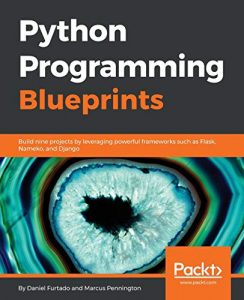Evolutorische Finanzökonomie: Ein Plädoyer für eine neue Sichtweise der Finanzmärkte und ihrer Institutionen
Written by Thomas Holtfort, this book dives deep into innovative perspectives on financial markets and their institutions, challenging conventional wisdom. It is essential reading for anyone interested in the evolution of financial theory and the practical implications of these changes. Holtfort argues for a fresh approach that combines both evolutionary biology and financial theory, presenting a compelling case for transformation within financial practices. Whether you are a finance professional or simply curious about the market dynamics, this book offers a comprehensive exploration that is both enlightening and thought-provoking.
Antifragility of Islamic Finance: The Risk-Sharing Alternative
In this groundbreaking book by Umar Rafi and Abbas Mirakhor, the authors discuss an alternative approach to finance that emphasizes risk-sharing, showcasing how Islamic finance models can navigate economic uncertainties. With a focus on antifragility — the capacity to thrive amidst chaos — this work presents critical insights for finance professionals eyeing sustainable models that withstand market shocks. Readers will gain valuable knowledge on the strategic benefits of Islamic finance and how its intrinsic principles can be applied to modern economic challenges. This is an essential read for anyone looking to deepen their understanding of ethical and resilient financial practices.
Islamic Sustainable Finance, Law and Innovation: Opportunities and Challenges
Nadia Mansour and Lorenzo Mateo Bujosa Vadell tackle the intersection of finance, law, and sustainability in this comprehensive work. With the rise of environmental concerns, this book critically assesses how Islamic finance principles can promote sustainable investments. The authors explore numerous opportunities and challenges facing innovators in the legal frameworks surrounding Islamic finance. This book is perfect for legal professionals, economists, and policy makers who seek a deeper understanding of how to integrate sustainability within the Islamic financial system. It is an eye-opening exploration into the future of finance.
Policy Incentives for Innovation: Increasing the number of FinTechs in Switzerland
Julian Osborne’s book provides an insightful analysis of the policies that can foster innovation in the FinTech ecosystem in Switzerland. This work serves as a blueprint for policymakers seeking to enhance the financial services landscape through legislative support and incentives. Osborne evaluates the current challenges faced by FinTech companies and proposes practical solutions. Entrepreneurs and policymakers alike will find valuable insights and strategies to stimulate growth and innovation. This text bridges the gap between theory and practice, making it a crucial resource for anyone involved in shaping financial technologies.
Basic Financial Management
Authored by Azhar Ul Haque Sario, this book breaks down the essential principles of financial management in a way that is accessible to everyone. Ideal for students and young professionals, it covers fundamental concepts of finance that are crucial for effective management. With practical examples and actionable insights, Sario empowers readers to navigate financial landscapes confidently. Whether you aim to sharpen your financial acumen for personal growth or professional advancement, this book is a vital resource, guiding you to become proficient in managing financial affairs.
Investors’ Preferences in Financing New Ventures: A Data Mining Approach to Equity
Francesco James Mazzocchini and Caterina Lucarelli explore the preferences of investors using a data mining approach, offering groundbreaking insights into the equity financing landscape. This book is pivotal for entrepreneurs seeking funding and for investors who wish to understand what drives their decisions. The authors provide empirical analysis focusing on the dynamics of new venture financing and offer suggestions for improving the funding process. It is a critical resource for those aspiring to navigate the equity financing domain successfully.
Personalization and Digital Social Markets: Disrupting the Capitalist Economy
Tahir M. Nisar challenges traditional capitalist models by exploring the concept of digital social markets. This book provides a thought-provoking discussion on how personalization is reshaping consumer behavior and market dynamics. Nisar presents a compelling case for rethinking economic strategies in the age of digital interactions. Readers interested in the future of commerce and social governance will find insightful perspectives and strategies to adapt to this evolving landscape. It is an essential read for entrepreneurs and policy-makers aiming to understand and thrive in digital economies.
Information and Communication Technologies (ICT) in Economic Modeling
Federico Cecconi and Marco Campennì’s work emphasizes the importance of ICT in economic modeling, presenting advanced techniques that enhance analytical capabilities. Ideal for economists and researchers, this book examines how ICT tools can improve forecasting and modeling within economic analyses. The authors bridge the gap between data science and economic theory, illustrating the transformative potential of technology in finance and economics. This book promises to enrich the reader’s understanding of the intricate connections between technology and economic outcomes.
The Routledge Handbook of Financial Literacy
In this compelling handbook by Gianni Nicolini and Brenda J. Cude, financial literacy is dissected from multiple angles, addressing its importance in modern-day financial decision-making. This comprehensive guide provides educators, policy makers, and psychologists with strategies to improve financial literacy across various demographics. The book serves both as an academic resource and a practical manual for enhancing financial skills at all levels. It is crucial for anyone who understands that financial literacy is a foundational skill in today’s economy.













































